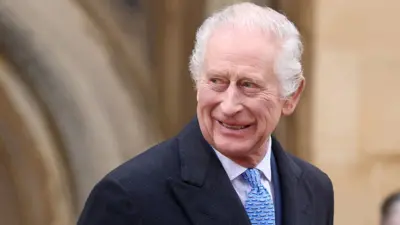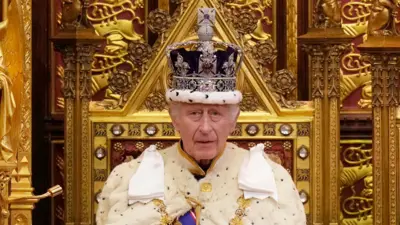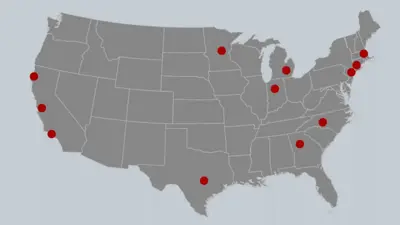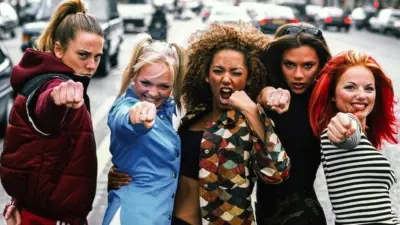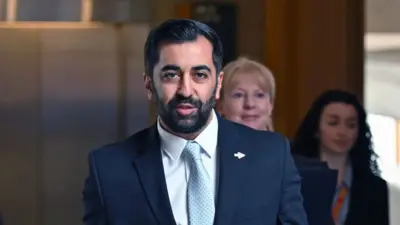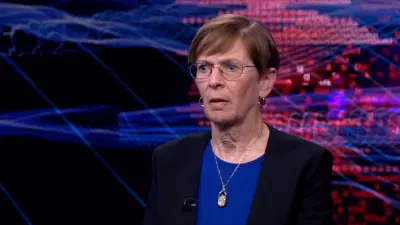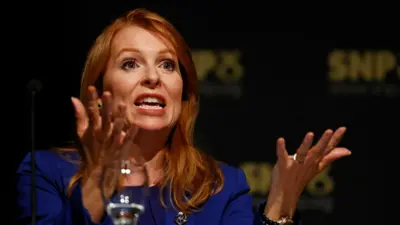We've updated our Privacy and Cookies Policy
We've made some important changes to our Privacy and Cookies Policy and we want you to know what this means for you and your data.
Culture wars make BBC impartiality tougher, director general Tim Davie says
It is harder than ever for the BBC to maintain impartiality amid the "culture wars" and a polarisation of online views, its director general has said.
The corporation has "done it pretty well for 99 years" and still is, Tim Davie has told a committee of MPs.
"I just think it's tougher now, by the way," he said on Tuesday. "I think the culture wars are raging, I think we've got a real battle on our hands.
"I walk a tightrope every day on this, but we've got to fight for it."
Impartiality is "sacrosanct", said Mr Davie, whose headaches over the issue since taking over a year ago have ranged from ruling on whether Newsnight's Emily Maitlis should have shared a tweet from Piers Morgan about the government's response to the pandemic, to whether staff can attend Pride marches.
The BBC is "nothing if it's not a good facilitator of proper open debate and diverse views", he told the House of Commons media select committee.
'Mission critical'
"I think that's essential to us. It's mission critical. It's us, and it puts you in a very different place to where the rest of the world is heading in my view, which is a dangerous place around partial media.
"I and others feel very passionately about this. We're in a battle for this, and I think we need to really be clear that we're not perfect. We've got plenty of work to do to facilitate a space where we can properly debate these issues."
He said the BBC must hire people from across the political spectrum, even if they know they must leave their personal views at the door.
The hearing came after the appointment of former HuffPost UK editor Jess Brammar to a senior role in BBC News, despite a row over old tweets that were critical of Brexit and the government.
BBC director of news Fran Unsworth announced her resignation shortly before Ms Brammar was appointed executive editor of BBC news channels, but Mr Davie said her decision to leave had "nothing to do with the latest incident".
'Dangerous territory'
He added: "I just saw a senior hire in [BBC] online going to someone from The Daily Telegraph. We need to hire the best as the BBC and we need to hire across the political spectrum."
Referring to the choice of Ms Brammar, he said: "That is an incredibly important precedent and this affair is dangerous territory for us, not because of the process, but if people begin doubting our ability to hire people with [political] views into the BBC, and when they get here they leave them at the door."
Mr Davie also warned that the corporation was losing stars in a "red hot" battle with rivals and streaming services.
"We're in an incredibly inflationary market," he said. "And we have lost people. Graham Norton has gone to Virgin Radio, and we've lost people to GB News, to LBC and other places. They're being poached."
Image source, Reuters
He also referred to Fleabag creator Phoebe Waller-Bridge, who signed an exclusive deal with Amazon Prime. Michaela Coel, however, has spoken about rejecting $1m (£730,000) from Netflix for her acclaimed drama I May Destroy You because the BBC offered her more creative control.
"Life is not just about money," Mr Davie said. "It's also about the creative experience you get. It's about making Normal People, it's about making something wonderful in drama or some of the documentaries [and] that ability to actually be on BBC One and have a big audience.
"So I wouldn't be too depressed about it. Having said that, I think, over time, there will be increasing pressure on us."
'Appalled' by Martin Bashir
Mr Davie was also asked about former BBC correspondent Martin Bashir, who was found to have acted "deceitfully" to gain his 1995 interview with Princess Diana.
That scandal has also put the spotlight on his other work, including an investigation into the 1986 murders of two girls. Michelle Hadaway, the mother of one of the victims, has said Bashir took her daughter Karen's clothes but did not do the promised DNA testing or return the clothing.
Image source, Getty Images
"We are extremely sorry for the distress this has caused Ms Hadaway," Mr Davie said. "It's very distressing that we haven't been able to give her answers in terms of what happened to that clothing, and I'm appalled that that got lost. It's a very serious issue."
A new attempt to find them has not yielded results, he said.
"With a slightly heavy heart, we're at a point where we are where we are, which is the clothing… and we have talked directly to Martin Bashir rather than through any agent.
"He doesn't know where the clothes are. I didn't speak to him… but he just doesn't know where the clothes are. Any other evidence coming to us, of course, we will proactively look at."
Top Stories
Features & Analysis
Most read
Content is not available
